
![Troopers after bushrangers [picture]](http://www.slv.vic.gov.au/pictures/0/0/0/im/pi000009.jpg)
Samuel Thomas Gill (1818-1880), Troopers after bushrangers, 1871, watercolour
Martin Cash bushranger
![Troopers after bushrangers [picture]](http://www.slv.vic.gov.au/pictures/0/0/0/im/pi000009.jpg)
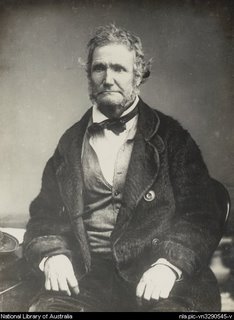
![]() Biographical source: Australian Dictionary of Biography online edition
CASH, MARTIN (1808-1877), bushranger, was born at Enniscorthy, County Wexford, Ireland, the son of George and Margaret Cash. He worked as a farm boy in Wexford until convicted in March 1827 of housebreaking. His own account of the crime was that he shot, through the house window, at a man who was embracing his (Cash's) mistress. His claim that the ball wounded his rival in the buttocks may be thought to add some verisimilitude to the story.
Six months later he was transported to Sydney for seven years in the Marquis of Huntley. He was assigned to George Bowman and continued to work for him in the Hunter River valley after receiving a ticket-of-leave. Becoming involved in cattle duffing, he left for Van Diemen's Land, accompanied by Bessie Clifford, arriving in February 1837 in the Francis Freeling. Two years later he was convicted of larceny and again sentenced to seven years. In the next three years he escaped three times; once he evaded capture for nearly two years, but was returned to Port Arthur with an additional four years to his sentence. Soon afterwards, with two experienced New South Wales bushmen, Kavenagh and Jones, he successfully eluded two guards at Port Arthur. The three pursued a bushranging career on foot, robbing inns and the houses of well-to-do settlers with seeming impunity, and without the use of unnecessary violence, thus earning them the reputation of 'gentlemen bushrangers'.
On hearing that Bessie Clifford had deserted him for another, Cash risked a visit to Hobart Town, but was captured and was tried for killing one of his pursuers. Some popular sympathy had been aroused for Cash, and for Kavenagh who had given himself up, by R. L. Murray's campaign against capital punishment. Although the services of Edward Macdowell, a former attorney-general, were secured in his defence, sentence of death was passed. At the eleventh hour the decision was reconsidered, opinion sought from England, and Cash remanded for fourteen months. The final decision, left to the lieutenant-governor, was for transportation for life, and Cash was sent to Norfolk Island to be held there for ten years. By then greatly subdued, his career from December 1844 was quiet. He was given some responsibility in charge of the boys' dormitory, and even earned some fame as a hat-maker.
In March 1854, just before the establishment broke up, he was given permission to marry Mary Bennett (1824-1879), a convict from County Clare. Six months later he received a ticket-of-leave, and soon afterwards returned to Tasmania where he had been gazetted a constable for the Cascades Agricultural Settlement. He worked for some time as overseer at the gardens in the government Domain, Hobart, and, on receipt of a conditional pardon in May 1856, went to New Zealand for four years. On his return he bought a property at Glenorchy and farmed there until his death on 27 August 1877. He was survived by his wife; their only child Martin, born in 1855, had died in 1871. Cash's Irish charm and cheerfulness, and the chivalry and enterprise of his rebelliousness, made him a popular scoundrel, in his later years known to all and enjoying the goodwill of all.
Before his death Cash made the acquaintance of James Lester Burke, an Irish expiree and able writer, who induced him to narrate his career. Burke edited the account which gives a rather coloured version of the truth. First published in Hobart in 1870, the book has been reprinted many times. A sketch of Cash by Alfred Bock is in the Dixson Collection, Sydney.
Biographical source: Australian Dictionary of Biography online edition
CASH, MARTIN (1808-1877), bushranger, was born at Enniscorthy, County Wexford, Ireland, the son of George and Margaret Cash. He worked as a farm boy in Wexford until convicted in March 1827 of housebreaking. His own account of the crime was that he shot, through the house window, at a man who was embracing his (Cash's) mistress. His claim that the ball wounded his rival in the buttocks may be thought to add some verisimilitude to the story.
Six months later he was transported to Sydney for seven years in the Marquis of Huntley. He was assigned to George Bowman and continued to work for him in the Hunter River valley after receiving a ticket-of-leave. Becoming involved in cattle duffing, he left for Van Diemen's Land, accompanied by Bessie Clifford, arriving in February 1837 in the Francis Freeling. Two years later he was convicted of larceny and again sentenced to seven years. In the next three years he escaped three times; once he evaded capture for nearly two years, but was returned to Port Arthur with an additional four years to his sentence. Soon afterwards, with two experienced New South Wales bushmen, Kavenagh and Jones, he successfully eluded two guards at Port Arthur. The three pursued a bushranging career on foot, robbing inns and the houses of well-to-do settlers with seeming impunity, and without the use of unnecessary violence, thus earning them the reputation of 'gentlemen bushrangers'.
On hearing that Bessie Clifford had deserted him for another, Cash risked a visit to Hobart Town, but was captured and was tried for killing one of his pursuers. Some popular sympathy had been aroused for Cash, and for Kavenagh who had given himself up, by R. L. Murray's campaign against capital punishment. Although the services of Edward Macdowell, a former attorney-general, were secured in his defence, sentence of death was passed. At the eleventh hour the decision was reconsidered, opinion sought from England, and Cash remanded for fourteen months. The final decision, left to the lieutenant-governor, was for transportation for life, and Cash was sent to Norfolk Island to be held there for ten years. By then greatly subdued, his career from December 1844 was quiet. He was given some responsibility in charge of the boys' dormitory, and even earned some fame as a hat-maker.
In March 1854, just before the establishment broke up, he was given permission to marry Mary Bennett (1824-1879), a convict from County Clare. Six months later he received a ticket-of-leave, and soon afterwards returned to Tasmania where he had been gazetted a constable for the Cascades Agricultural Settlement. He worked for some time as overseer at the gardens in the government Domain, Hobart, and, on receipt of a conditional pardon in May 1856, went to New Zealand for four years. On his return he bought a property at Glenorchy and farmed there until his death on 27 August 1877. He was survived by his wife; their only child Martin, born in 1855, had died in 1871. Cash's Irish charm and cheerfulness, and the chivalry and enterprise of his rebelliousness, made him a popular scoundrel, in his later years known to all and enjoying the goodwill of all.
Before his death Cash made the acquaintance of James Lester Burke, an Irish expiree and able writer, who induced him to narrate his career. Burke edited the account which gives a rather coloured version of the truth. First published in Hobart in 1870, the book has been reprinted many times. A sketch of Cash by Alfred Bock is in the Dixson Collection, Sydney.
![]()

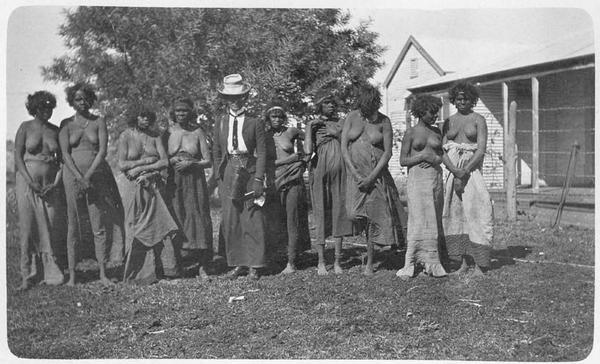



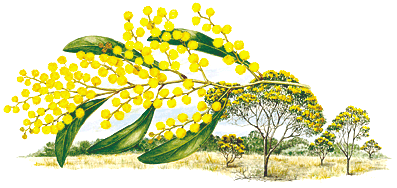


+copy.jpg)










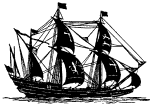





















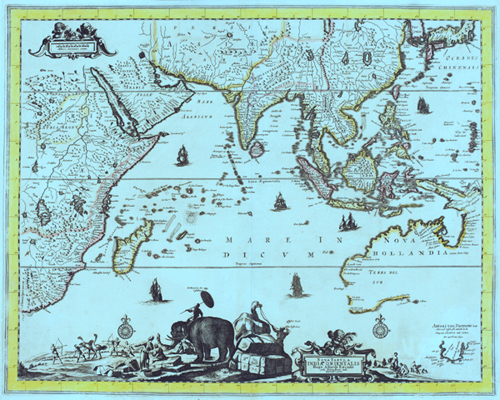

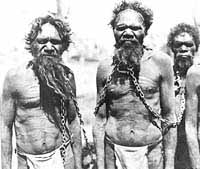
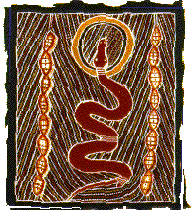


















.jpg)
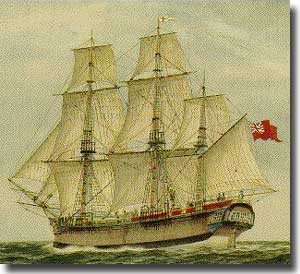

























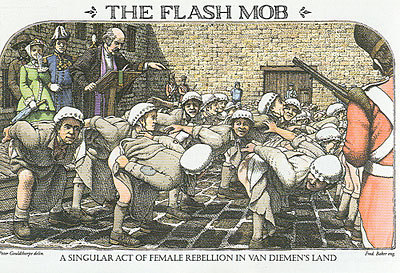
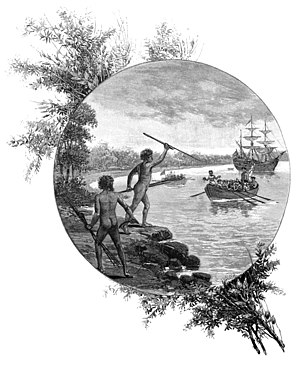 G
G







.jpg)
















No comments:
Post a Comment